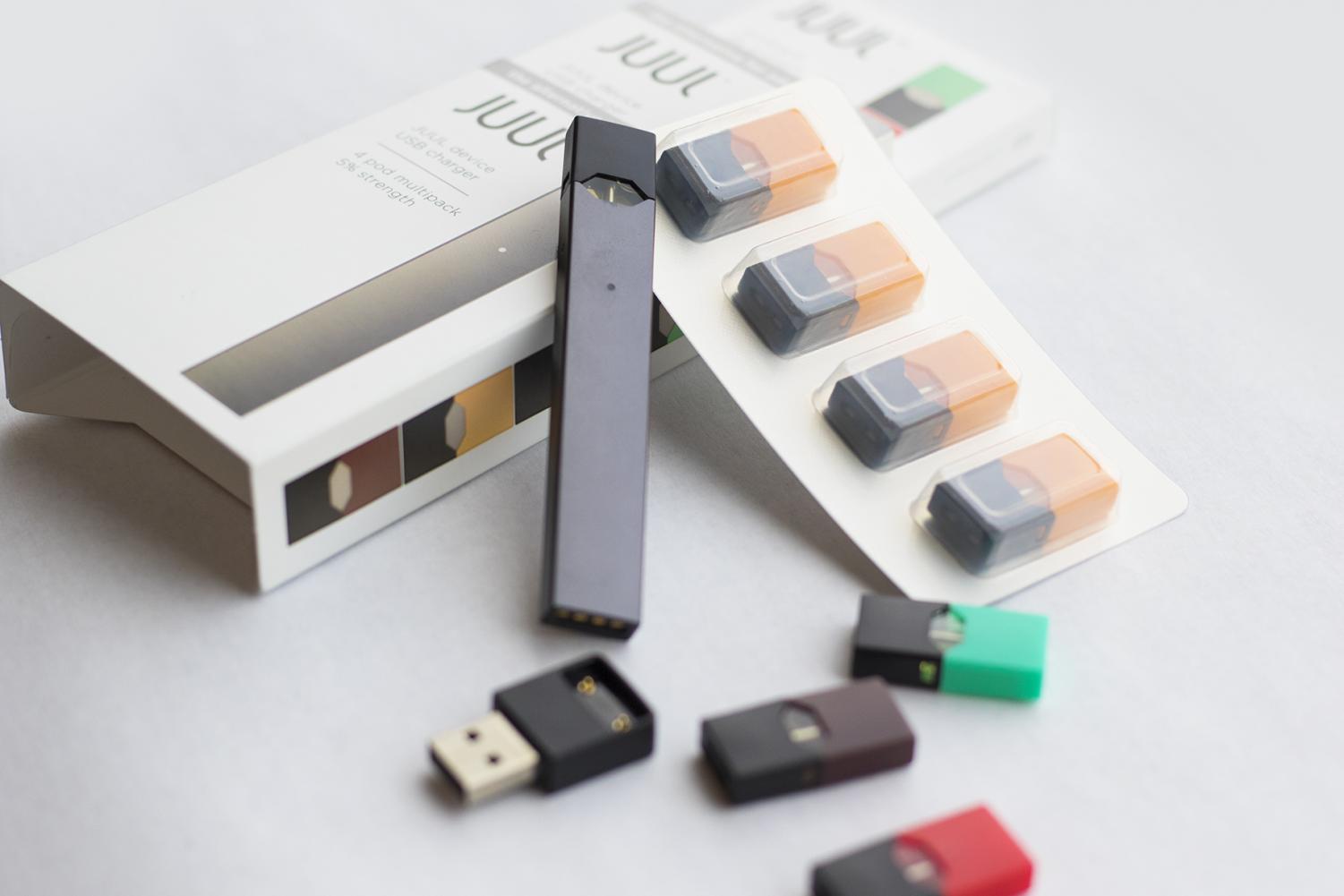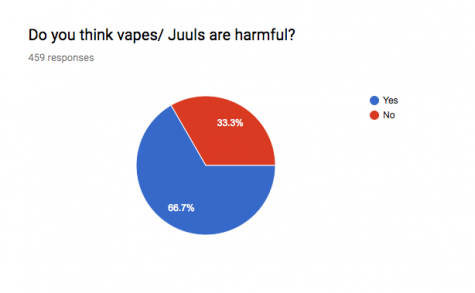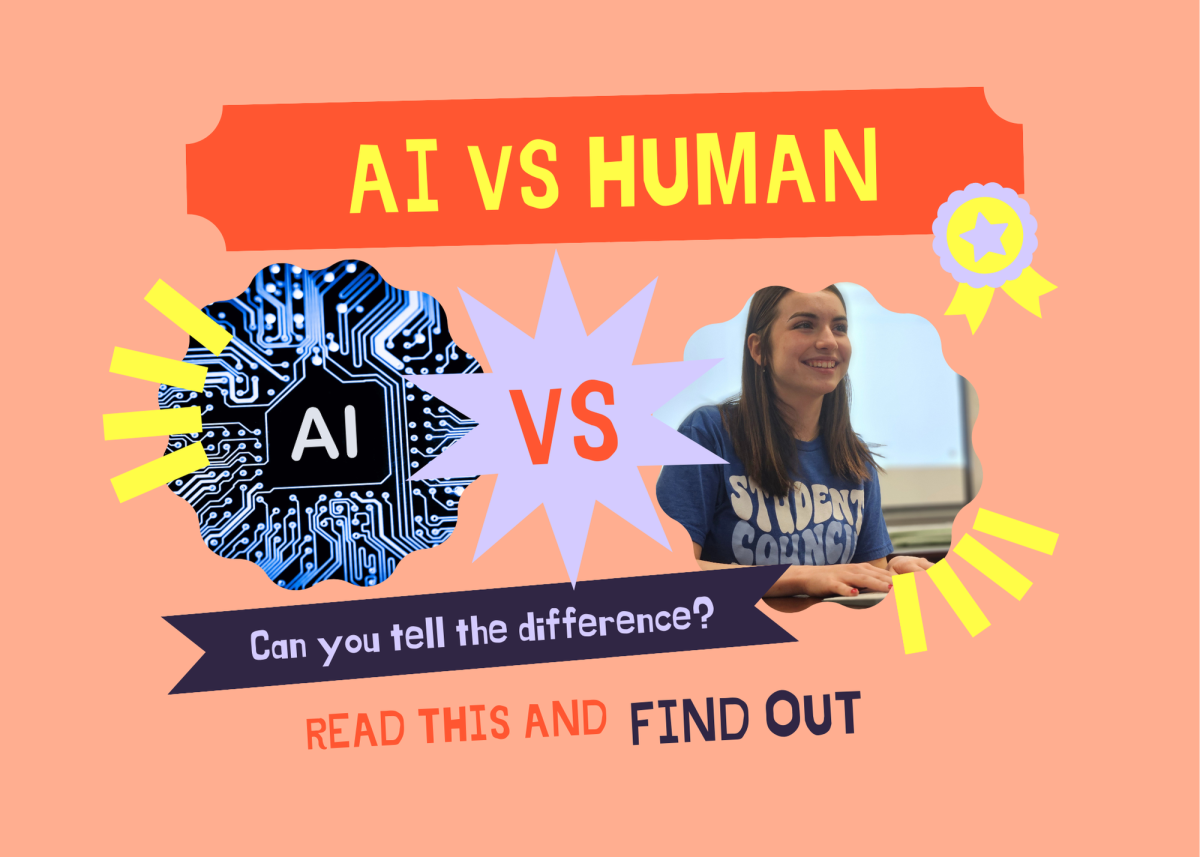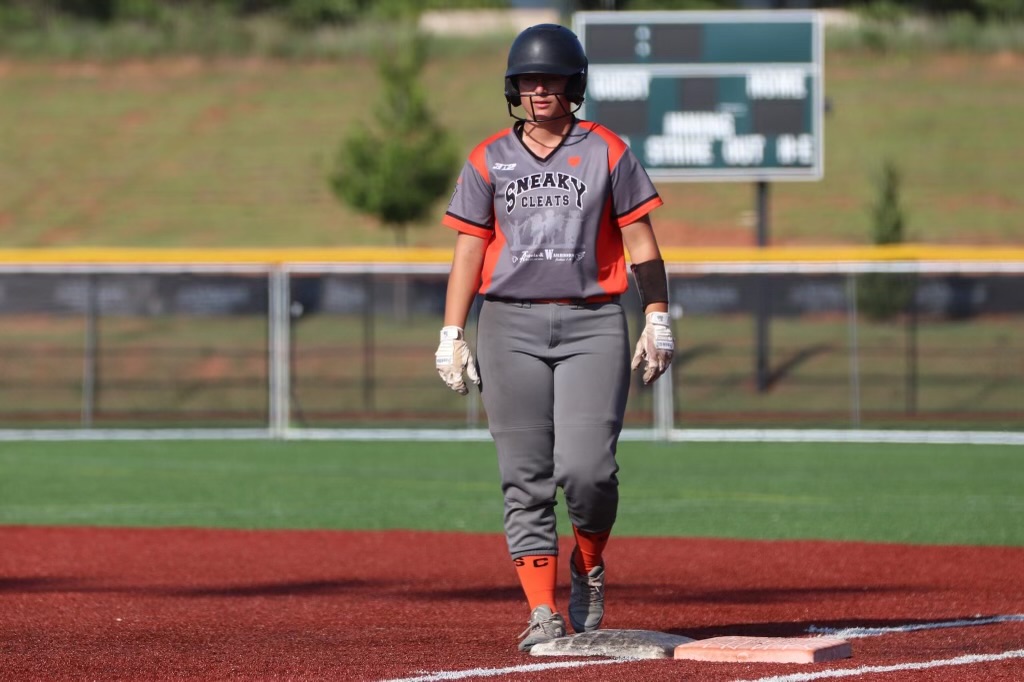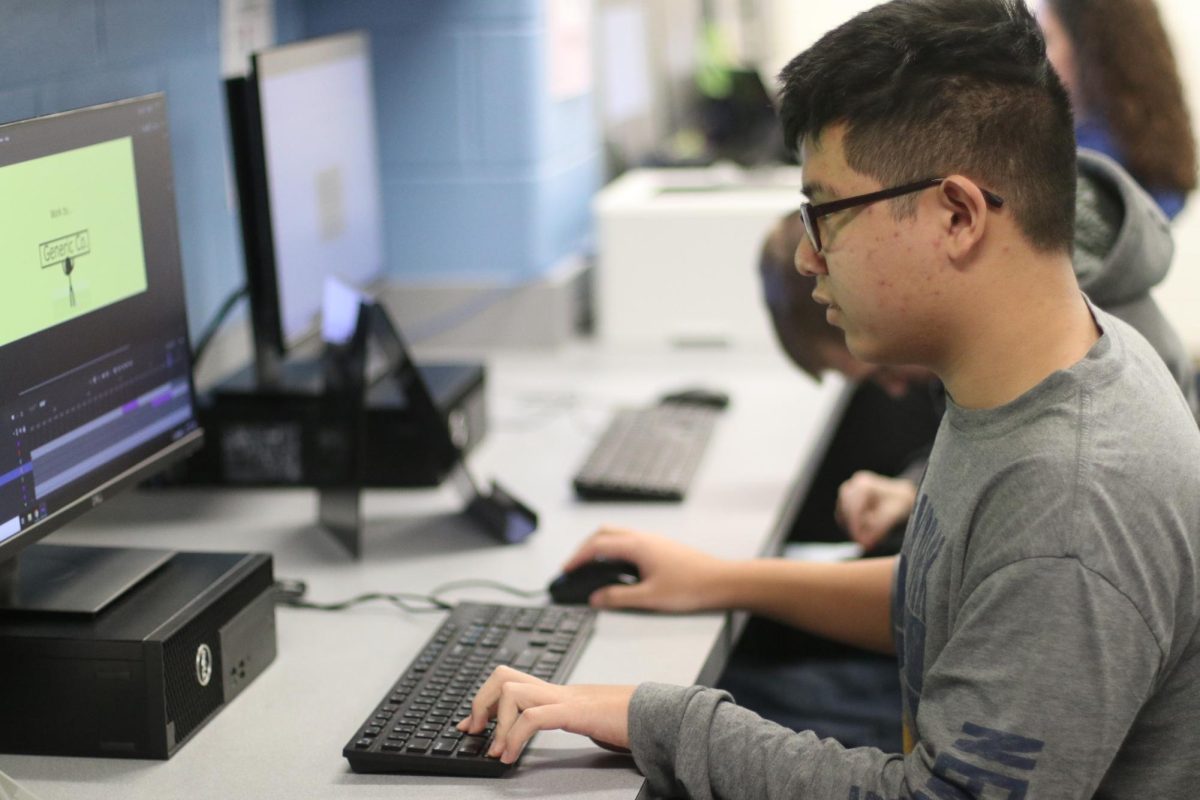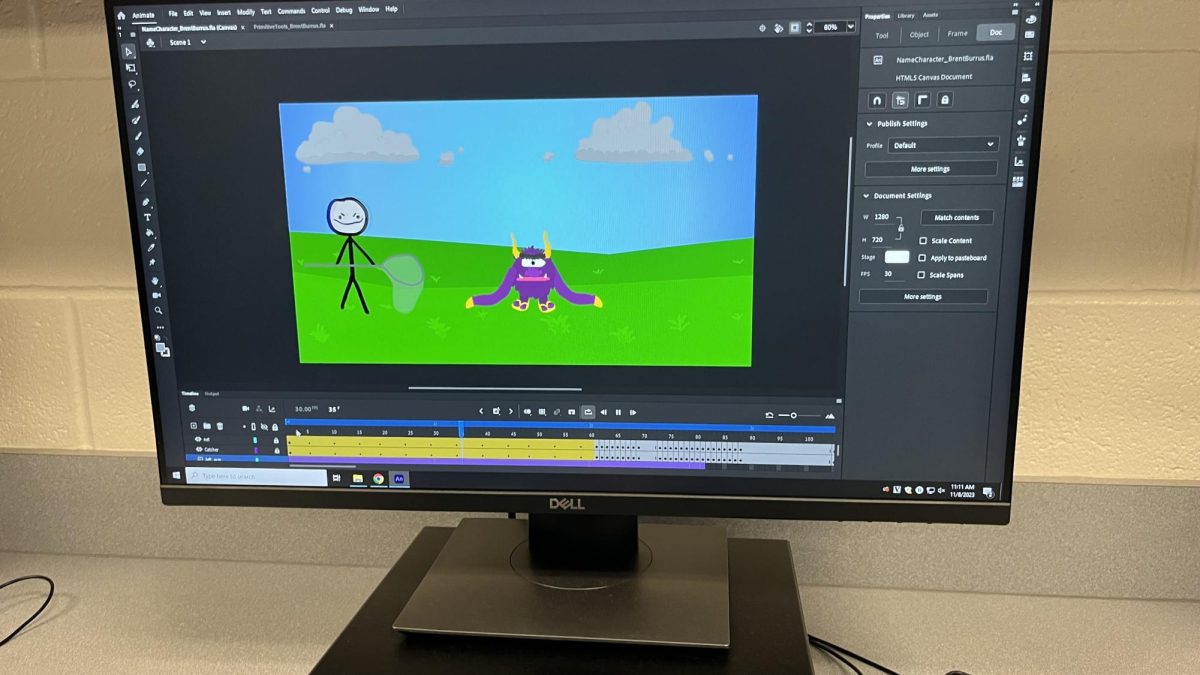In the middle of a lecture documenting the events leading up to the Battle of Yorktown, a student raises his hand. He points to the yellow bathroom pass by the door with the obvious question in his eyes. Before, the teacher would have granted him permission without a flicker of reluctance. Now, the teacher has cause to hesitate. 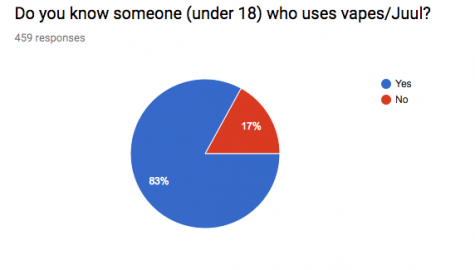
The widespread use of nicotine-containing products such as electronic cigarettes and JUULs on campus has come to the attention of administrators and faculty. A Lunch and Learn will be held February 5 to bring awareness to staff and inform them of the dangers associated with tobacco products. According to a survey done with LHS students, 83% of respondents know someone under 18 who uses vapes/Juuls.
“I don’t think [the use of nicotine products is] good for the health of the students,” assistant principal Ryan Tomlin said. “Research has shown that, and we’ve [had this problem] long enough to see that it doesn’t benefit the body. I just don’t think it’s what we want to portray on our campus as we’ve tried to promote a safe [and enjoyable] place to come.”
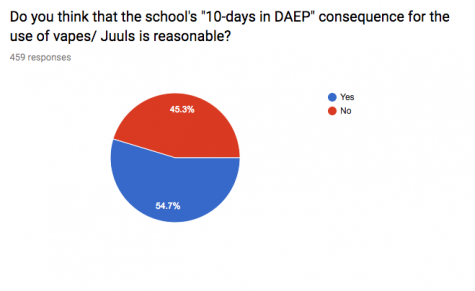 According to Tomlin, staff began recognizing students’ abuse of the products on campus four to five years ago. Along with a possible ticket, the consequences of being caught have been increased from 2 days of on-campus suspension to 10 days in DAEP.
According to Tomlin, staff began recognizing students’ abuse of the products on campus four to five years ago. Along with a possible ticket, the consequences of being caught have been increased from 2 days of on-campus suspension to 10 days in DAEP.
“I would just say to our students that it is not about us trying to just get [onto] you all of the time,” Tomlin said. “It is about us trying to help. We want you to get your education, but also there is another side of just what is good for you.”
According to an anonymous student, students under 18 get their products from e-cigarette shops throughout the county. The most popular product among teenagers is a JUUL, and with the help of legal adults, underage students are able to pay others to buy them and the necessary supplies.
“You never hear anything positive about [vaping or JUULs],” senior Dillon Heinaman said. “These [are] the cigarettes of our generation. It’s had a negative impact on a lot of things because people lose motivation to do stuff.”
Information from JUUL.com states that each JUUL pod contains three to five percent nicotine according to the flavors. According to NBC Today, this amount of nicotine is equivalent to 27 cigarettes.
“I’ve noticed that a lot of athletes who vape have struggled in conditioning drills like running sprints,” Heinaman said. “They struggle because all of the nicotine makes it harder to breathe.”
There are no health benefits associated with products containing nicotine, such as vapes or JUUL. However, many students are attracted to the products because of the flavors, such as mango and other fruity flavors, which the businesses have advertised. Additionally, a study in the Nicotine and Tobacco Research Journal shows that teens are more likely to use cigarettes if they use e-cigs at an early age.
“I enjoy them,” an anonymous LHS student said. “They aren’t harming at all. I believe that they will keep kids from buying and getting addicted to cigarettes and weed.”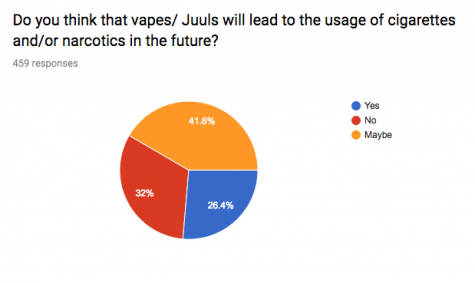
In order to minimize the use of tobacco products on campus, administrators are considering an incentive for students who speak up about the use of nicotine-containing products on campus. The administrators and faculty have increased awareness of the dangers and consequences through posters and the television screens. However, currently 33% of students surveyed at LHS think vapes/Juuls are not harmful.
“I don’t think that there is any solution that will put an end to it 100 percent, but some of the things that we are trying to do is to just increase awareness and increase the consequences,” assistant principal Matt Strode said. “Hopefully, we can inform our teachers of certain things that we haven’t been able to in the past.”
According to a recent survey at the school, 83 percent of students answered that they know someone under 18 who uses tobacco products. 66.7 percent of students believe that products are harmful, and 68 percent believe that it is possible that the use of vapes and JUULs lead to future use of cigarettes and other narcotics.
“I am very concerned about the use of vapes and Juuls among our teens,” teacher Neda Morrow said. “It is obvious that they are being marketed in a way to attract young buyers. The fact that they are tiny and look like a thumb drive makes it difficult to spot in the classroom, and I fear that kids think they are harmless when they are basically just another gateway to even more destructive habits.”


